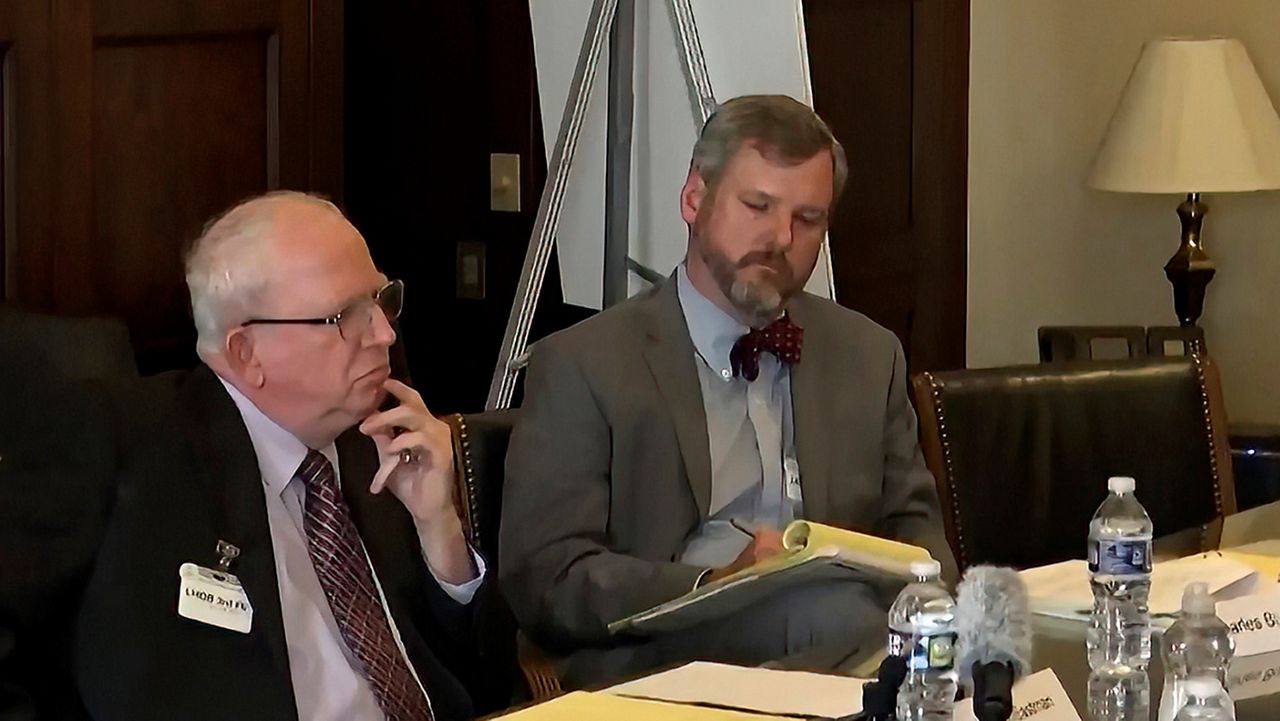SANTA ANA, Calif. (CNS) — With a congressional committee still probing into the Jan. 6 insurrection, a federal judge in Santa Ana has been asked to referee another dispute over emails of former Chapman University law professor John Eastman, who represented ex-President Donald Trump.
What You Need To Know
- U.S. District Judge David O. Carter set a briefing schedule for the attorneys on Thursday with the last reply from Eastman due by Oct. 5
- The dispute over the emails had been dormant since June
- On May 6, the committee asked the judge to review in private 721 documents totaling about 2,945 pages
- Carter in June ruled that there was evidence of plotting to derail the certification of President Joseph Biden's election that began "as early as Dec. 7, 2020"
The House Select Committee on the Jan. 6 violence filed a motion Wednesday asking U.S. District Judge David O. Carter to hold a private hearing to go over Eastman's claims of attorney-client privilege regarding 572 documents. Carter set a briefing schedule for the attorneys on Thursday with the last reply from Eastman due by Oct. 5. The dispute over the emails had been dormant since June.
On May 6, the committee asked the judge to review in private 721 documents totaling about 2,945 pages. The committee said it "was willing to hold in abeyance its objections to 576 documents, totaling approximately 3,236 pages, while reserving the right at a later date in camera review of the documents held in abeyance," according to Wednesday's filing.
"As the Select Committee reaches the final months of its tenure under its current authorizing resolution, it now respectfully seeks such in-camera review so that it may complete its efforts, including preparation of the final report mandated by its authorizing resolution," the committee's attorneys wrote in the filing.
The committee's attorneys argued they believed that Carter has determined all of the privilege claims, but Carter set a briefing schedule on the issue. But the judge agreed to the committee's expedited schedule of legal arguments so the committee can conclude its work before Jan. 3.
The committee's attorneys said they contacted Eastman's attorney on Aug. 4, and he said he would get back to them, but when they did not get a response, the committee on Aug. 26 said it would ask Carter to intervene by Aug. 29. On Aug. 29, Eastman's attorney "made a 'partial production' consisting of four documents, accompanied by a spreadsheet that listed an additional 212 documents over which (Eastman) continued to assert privilege, all of which were dated Dec. 18, 2020, or earlier," according to the committee.
Eastman's attorney said that some of the documents the committee sought were ruled to be privileged, and some were part of a chain of emails the committee earlier had dropped objections to the privilege claim, according to the committee.
"In light of this exchange over the past month or so, it seems clear that further consultation with plaintiff's counsel will not result in the Select Committee receiving the material that it seeks in a timely manner," the committee's attorney wrote.
Carter in June ruled that there was evidence of plotting to derail the certification of President Joseph Biden's election that began "as early as Dec. 7, 2020." Carter wrote that, "On that day, Dr. Eastman forwarded a memo explaining why Jan. 6 was the 'hard deadline' that was 'critical to the result of this election' for the Trump Campaign. A week later, on Dec. 13, President Trump's personal attorney received a more robust analysis of Jan. 6's significance, which was potentially 'the first time members of President Trump's team transformed a legal interpretation of the Electoral Count Act into a day-by-day plan of action.'"
Carter said the documents in dispute "also confirm that the plan was established well before Jan. 6, 2021."
The judge added, "In an email on Dec. 22, 2020, an attorney with the Trump legal team referred to the 'the Jan. 6 strategy' as a known plan to eight other people. Two days later, Dr. Eastman explained that the worst case for the plan was receiving a court decision that constrained Vice President (Mike) Pence's authority to reject electors. Dr. Eastman and President Trump's plan to stop the count was not only established by early December, it was the ultimate goal that the legal team was working to protect from that point forward."
The alleged plan was to have an alternate set of electors established in various states where the election was close, creating a dispute that Pence could decide and swing the election to Trump.
Carter ordered some documents released under a legal theory that the normally privileged documents were possibly part of a criminal conspiracy, which overtakes the right to keep them private.
Carter said four of the five disputed documents consider how filing election-related lawsuits might hurt the plan.
"In the fifth email, dated Dec. 22, 2020, an attorney goes beyond strategizing litigation outcomes," Carter wrote. "This email considers whether to bring a case that would decide the interpretation of the Electoral Count Act and potentially risk a court finding that the act binds Vice President Pence. Because the attorney concluded that a negative court ruling would 'tank the Jan. 6 strategy,' he encouraged the legal team to avoid the courts. This email cemented the direction of the Jan. 6 plan. The Trump legal team chose not to seek recourse in court — instead, they forged ahead with a political campaign to disrupt the electoral count. Lawyers are free not to bring cases; they are not free to evade judicial review to overturn a democratic election."
Carter's rulings have factored prominently in the committee's hearings, with Rep. Liz Cheny of Wyoming quoting them in her remarks.



